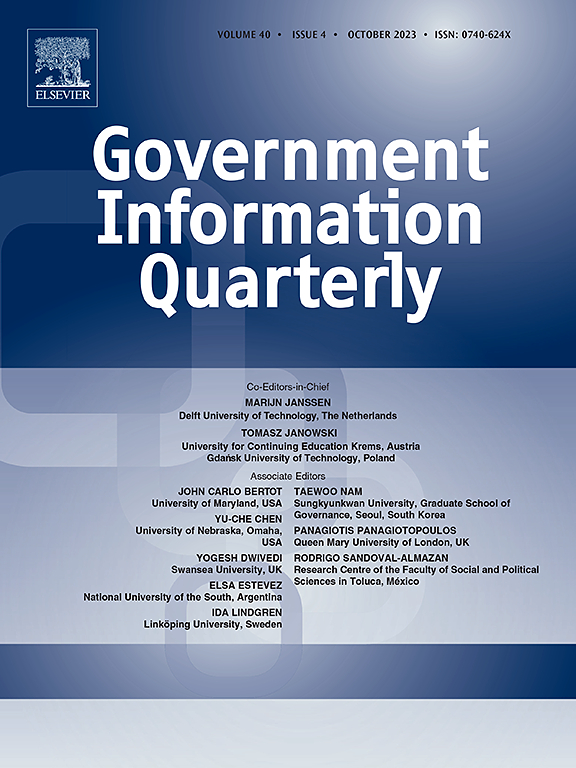评估全球在线公共服务的信息安全态势:技术见解、趋势和政策含义
IF 10
1区 管理学
Q1 INFORMATION SCIENCE & LIBRARY SCIENCE
引用次数: 0
摘要
在线公共服务在全球的快速扩张改变了政府与公民互动的方式,提供了便利和效率。然而,这种数字化转型也带来了重大的安全风险,因为用户和服务提供商之间通过公共网络交换的敏感数据暴露在网络威胁之下。因此,确保这些服务的安全性和可信度对于电子政府(EGOV)计划的成功至关重要。本研究通过2023年和2024年的非侵入性评估,评估了联合国所有193个成员国3068个公共服务平台的信息安全态势。评估侧重于三个关键方面:(i)采用安全的端到端通信协议,(ii)数字证书链的可信度,以及(iii)托管服务器暴露于已知漏洞的风险。调查结果显示,尽管在确保在线公共服务安全方面取得了一些进展,但在实施国际安全标准和最佳实践方面仍存在巨大差距。许多平台仍然依赖于过时的加密协议、错误配置的证书和未修补的漏洞,使得公民和服务容易受到网络威胁,因为恶意行为者可以很容易地、不明显地识别这些弱点。这些见解强调了有效实施更全面的网络安全政策、主动安全评估和改进法规遵从性检查的必要性。此外,这项工作为政府和系统管理员提供了可操作的指导,通过解决持续存在的漏洞和采用强大的网络安全实践来增强EGOV基础设施的安全性。本文章由计算机程序翻译,如有差异,请以英文原文为准。
Assessing the information security posture of online public services worldwide: Technical insights, trends, and policy implications
The fast global expansion of online public services has transformed how governments interact with citizens, offering convenience and efficiency. However, this digital transformation also introduces significant security risks, as sensitive data exchanged between users and service providers over public networks are exposed to cyber threats. Thus, ensuring the security and trustworthiness of these services is critical to the success of Electronic Government (EGOV) initiatives. This study evaluates the information security posture of 3068 public service platforms across all 193 UN Member States through non-intrusive assessments conducted in 2023 and 2024. The evaluation focuses on three key dimensions: (i) the adoption of secure end-to-end communication protocols, (ii) the trustworthiness of digital certificate chains, and (iii) the exposure of hosting servers to known vulnerabilities. The findings reveal that while some progress has been made in securing online public services, substantial gaps remain in the implementation of international security standards and best practices. Many platforms continue to rely on outdated cryptographic protocols, misconfigured certificates, and unpatched vulnerabilities, leaving citizens and services vulnerable to cyber threats due to weaknesses that malicious actors can easily and inconspicuously identify. These insights emphasize the need for effective implementation of more comprehensive cybersecurity policies, proactive security assessments, and improved regulatory compliance checks. Additionally, this work provides actionable guidance for governments and system administrators to enhance the security of EGOV infrastructures by addressing persistent vulnerabilities and adopting robust cybersecurity practices.
求助全文
通过发布文献求助,成功后即可免费获取论文全文。
去求助
来源期刊

Government Information Quarterly
INFORMATION SCIENCE & LIBRARY SCIENCE-
CiteScore
15.70
自引率
16.70%
发文量
106
期刊介绍:
Government Information Quarterly (GIQ) delves into the convergence of policy, information technology, government, and the public. It explores the impact of policies on government information flows, the role of technology in innovative government services, and the dynamic between citizens and governing bodies in the digital age. GIQ serves as a premier journal, disseminating high-quality research and insights that bridge the realms of policy, information technology, government, and public engagement.
 求助内容:
求助内容: 应助结果提醒方式:
应助结果提醒方式:


